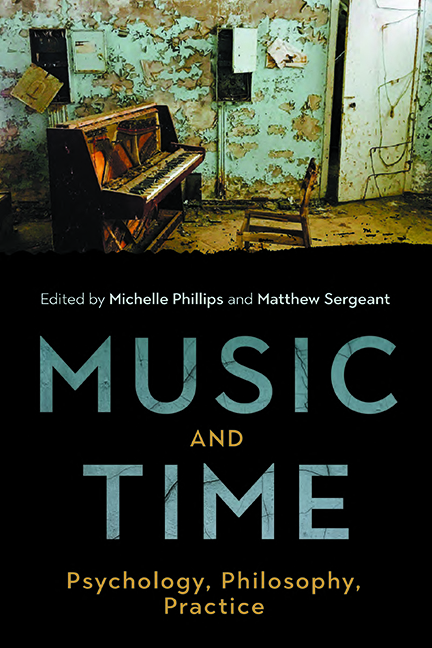1 - Music Listening and the Perception of Time: The LEMI Model
Published online by Cambridge University Press: 07 October 2022
Summary
Introduction
Without hesitation, after I gave an overview of existing research on how listening to music may alter perception of time, His Royal Highness the late Prince Philip responded, ‘you mean, for example, like when you hear music when you are on hold on the telephone?’ Setting aside the doubts we might have about whether His Royal Highness had ever been on hold on the telephone, we can draw three important observations from this exchange:
1. The link between music and time is one that people understand Immediately
2. The link manifests itself in everyday situations in our daily lives
3. There are benefits to gaining new knowledge around music and time and applying these to real-world environments and settings
This chapter will introduce a new model, the Listener Environment Music Interaction (‘LEMI’) model, which seeks to capture what existing research tells us about our sense of time during music listening. Categories included in this model will be illustrated with reference to examples from relevant scholarship in existing publications which have examined perception of time during music listening over the last forty years. Essentially, the multitude of factors which impact on sense of time during music listening is extensive, and, moreover, the interaction between these factors (such as enjoyment and familiarity) has only recently begun to be explored. The complexity of each listening experience, and the interaction between elements such as the listening environment (whether live or digital, for example), the mood and age of the listener, their sense of familiarity with the musical material, and the material itself in the hands of the composer and performer (whether improvising, playing, or coding), is only just beginning to be acknowledged and examined. This complexity becomes all the stickier when we begin to consider that all of these elements of a listening experience are fluid, and are in states of flux at varying paces, for the duration of that experience.
Discussion in this chapter will focus primarily on studies which sit within the field of music psychology, or empirical musicology. Such work focuses on experiments during which participants listen to one or more stimuli in controlled conditions (although more real world – or ‘ecologically valid’ – settings are becoming increasingly common), and respond to these stimuli, after which data are analysed using statistical tests.
- Type
- Chapter
- Information
- Music and TimePsychology, Philosophy, Practice, pp. 11 - 28Publisher: Boydell & BrewerPrint publication year: 2022



